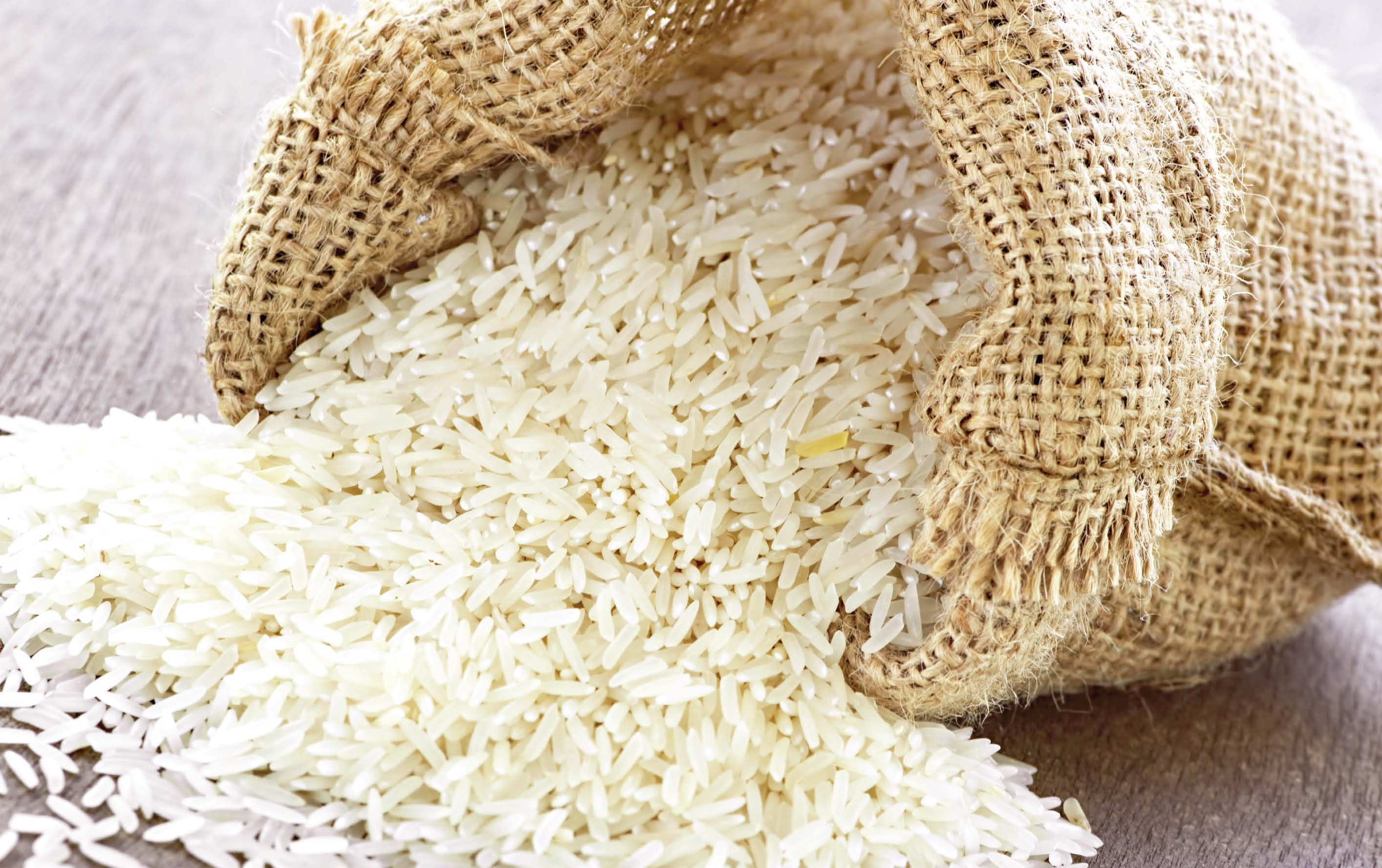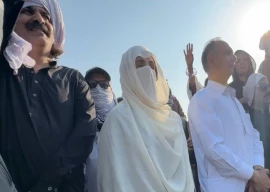
Indian rice exports direct to Iran have bounced back, thanks to shippers being paid up front in rupees from a huge pool of oil money owed to Iran by Indian refiners.
"Now business is being done directly because Iran is allowed to open letters of credit in Indian rupees because the government has to pay money to Iran for the oil," said Suresh Manchanda, marketing director of a Delhi-based company which exports rice, wheat and sugar globally.
"For the importers back in Iran, Indian rupees are easily available to them via the government, so they can do business in a much easier way than doing business in any other currency," Manchanda told Reuters at the Gulf Food trade show in Dubai.
"For all practical purposes the money never leaves anywhere, the money is already in India."
India is Tehran's biggest rice supplier but shipments were held up in early 2012 after Iranian buyers defaulted on payments. Many Indian suppliers then stopped sales on credit.
Tightened sanctions on shipping and bank transfers between Iran and India started a boom in Pakistani rice trucked across the remote border into Iran by groups based in Quetta, grains traders from Pakistan and India said at the world's biggest food show last week.
Problems getting paid by private Iranian buyers hit by a slide in the value of the rial also saw the rice flow from India being routed through Dubai, with wholesalers there taking on the payment risk in return for a mark-up.
Before Western sanctions aimed at stopping Tehran's disputed nuclear programme began to bite, Indian official data show rice sales to the Islamic Republic were surging.
They more than doubled in the financial year of 2009-2010 and also rose in value by nearly 35 percent to over $600 million from April 2011 to the end of March 2012, but this was a period when India's overall rice export earnings almost doubled in value globally.
Dubai's role in the India-Iran rice trade has withered since oil pool payments started.
From April 2011 to the end of March 2012, $821 million of Indian rice was shipped to the United Arab Emirates, more than anywhere else. But in just nine months from April to December last year Iran imported over $725 million of Indian rice, up 20 percent on the previous 12 months, while Indian exports to the UAE slumped to $287 million, official figures show.
There is effectively no limit to how much Indian rice exports to Iran can be funded by the oil money pool, because even when India's oil imports from Iran fell more than 40 percent from January 2012 to 2013, their value was still nearly $1 billion in one month.
"The new payment mechanism has been helping Indian rice exporters. Competitors in Pakistan don't have any such facility," M P Jindal, president of the All India Rice Millers Association said.
"This year we are estimating at least a 10 percent rise in basmati rice exports. Exports are booming, especially to Iran and Iraq."
Pakistan exported around 30,000 tonnes of rice, worth $21 million, directly to Iran in the second half of 2012, a sharp fall from the 12 months to the end of June 2012 when sales approached 140,000 tonnes, according to the Rice Exporters Association of Pakistan (REAP).
Pakistan's rice sales to the UAE, the main shipping route into Iran, also dropped sharply to less than 52,000 tonnes in the second half of 2012, compared to nearly 228,000 tonnes in the previous 12 months, REAP data showed.
Iran relies on imports for about 45 pct of its annual rice consumption of 2.9 million tonnes, according to U.S. Department of Agriculture data.
End of monopoly
Iranian buyers prefer Indian basmati rice, but shipping and payment problems faced by Indian suppliers created an opportunity for Pakistani dealers based near the border with Iran to make big profits, rice exporters based in Karachi said.
Those willing to take the risk of trucking goods along hundreds of kilometres of highways of western Pakistan to the remote border area with Iran could charge premiums well above Indian rice prices.
"Last year India had a lot of currency issues and then Pakistan was selling at around a $150 premium over India because India could not sell to Iran directly... It became a monopoly," Mohammad Raza, a Karachi-based rice exporter, said.
"This year that's not happening... This year it has shrunk considerably, but it has not completely finished."
The success of India's oil pool for funding exports direct into Iranian ports over the last few months has hit Pakistan's rice truckers' profits hard, slashing premiums to well below $80/tonne in early 2013, he said.
These border traders who have problems getting paid by Iranian buyers are also driving a boom in barter of fuel for food, several rice traders at the show said.
"The trucks are not going to Iran. They used to go there but not anymore because the money is not coming from Iran to Pakistan so the trade has virtually stopped," Tariq Ghori, director of Karachi-based Matco Rice Processing Ltd, told Reuters at the Gulf Food trade fair in Dubai last week.
Matco, one of Pakistan's biggest Basmati rice exporters with sales of over 100,000 tonnes last year, and Raza's company were not part of the border food trade boom because the risks of shipping across Pakistan are high and the competition from Quetta-based groups fierce.
"They are done by people at the border. They have links with the Iranian people... Family ties, they know each other, speak the same language, so they do the trade," Ghori said.
"Big companies like us, sitting in the big cities, cannot do that trade."
Many mainstream competitors shipping out of Karachi still rely on Dubai middlemen buy their product and sell it on to Iran, putting them at a disadvantage to Indian exporters now able to ship direct.
Many Indian rice sales to Iran were also done through Dubai on credit until a slump in the rial in early 2012 prompted several Iranian buyers to default on payments. Since then most Dubai traders will only deal with Iranian buyers paying up front or brandishing a letter of credit from their government to tap the oil revenue pool in India.
COMMENTS (8)
Comments are moderated and generally will be posted if they are on-topic and not abusive.
For more information, please see our Comments FAQ



1732626034-0/BeFunky-collage-(92)1732626034-0-165x106.webp)


1732621030-0/Express-Tribune-(7)1732621030-0-270x192.webp)
1732622842-0/Express-Tribune-(9)1732622842-0-270x192.webp)

1725254039-0/Untitled-design-(24)1725254039-0-270x192.webp)







@Nasir Mahmood Sahib, most certainly Iranians consider Pakistani Rupee worthless.
@Yoghurt lover: In a country where the food grains to the poor are hugely subsidized your statement is wrong. Otherwise also huge amount of rations, K oil, gas, petrol and diesel etc is distributed through PDS. India, irrespective of which party ruled, has been consistently doing much for the down trodden.
@Nasir Mahmood: because Pakistan is not the sovereign country and therefore, he is not allowed by his father i-e., * to marry or deal directly with Iran and for the very same reason, we pay over usd 1/ lt of petrol, while we can have it for only pkr 30/lt transport prices will go down, production prices will also go down which will result in lesser imports of finished goods, over all prices will go down, exports will be encouraged, likely to reach at the breakeven of balance of payments gradually, more of the investments will be made (dams, power plants, industries), more employment opportunities, more stronger nation and economy...
@Yoghurt lover: India's food inflation has actually stabilized over the past year. . Malnutrition depends on affordability. It has a tenuous relationship with supply and demand as popularly thought. Would suggest you to read the papers of Nobel Prize winning economist, Prof. Amartya Sen, who studied a number of famines around the world including the Great Bengal famine. In Somalia, he found out that local grain producers were exporting food-grains at the time there was a famine there because people of neighboring countries could afford the food-grains. . In India, we need to increase affordability of food either by providing income or subsidizing food-grains. To overcome fluctuations, the Food Corporation of India must be modernized to reduce loss due to improper storage, weather, pilferage, rats, etc. Also as gp65 says, the APMC act must be rectified to improve distribution.
Why cann't Pakistan make such an arrangement with Iran?
@Yoghurt lover: India's inflation of food pricest has nothing to do with exrpot induced shortage. Instead they are caused by horrendous distribution related laws and storage infrastructure. There is more grain than there are godowns to store wheat and rice so almost 33% of grains are stored in plastic bags in open where they are sure to rot.
Looking at how the price of rice is going up in India, I think India should stop exporting food products and food grains.
The hardest hit are the poor.
I wish we could eat microchips and cell phones, they are the only ones with prices going down.